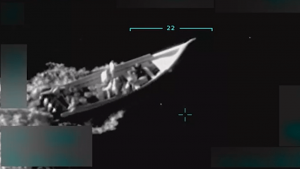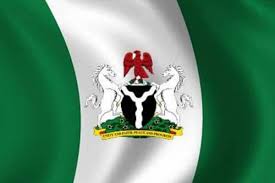After a delay of three weeks and a court case, Nigeria finally launched her eNaira digital currency.
President Muhammadu Buhari officially unveiled the eNaira on 25 October, 2021 with the theme: Same Naira, More Possibilities.
The official launch was earlier planned for 1 October, 2021 while the Central Bank of Nigeria opened the eNaira website https://www.enaira.com on 27 September, 2021.
The website recorded one million hits a few hours after opening and two and half million hits daily, afterwards.
However, a company, ENaira Payment Solutions Ltd (incorporated on April 7, 2004), filed a suit (FHC/ABJ/CS/113/2021) against the Central Bank of Nigeria over trademark infringement.
They said the Central Bank’s action amounted to a threat to willfully infringe on their trademark and their corporate name, ENaira Payment Solutions Ltd.
The ramifications of this illegal act, they say, are extensive: This can deceive the public into believing that eNaira emanated from their company and the consequences are grave with the potential to expose them to all manner of damage, loss of business and loss of goodwill.
They prayed the court to stop the launch of eNaira by the Central Bank of Nigeria.
Jutice Taiwo Taiwo of Federal High Court, Abuja, on 30 September, 2021 ruled that the launch of the digital currency can go ahead in the interest of the country because the plaintiff can be adequately compensated.
He adjourned the case for further hearing to October 11, 2021.
The uncertainty towards the launch lingering on so late may have jolted the apex bank in its preparations.
However, the Central Bank only said the eNaira launch was deferred because of many important activities to commemorate the country’s 61st Independence Anniversary on 1 October, 2021.
After about 100,000 downloads, the eNaira app recorded negative reviews and low rating by Android users on Google Play Store.
Two days after the launch, the eNaira wallet was removed from the Google Play Store to enable Google to upgrade it.
The eNaira is a Central Bank of Nigeria-issued digital currency, a form of money, denominated in the country’s currency, the Naira.

Since it is backed by the Central Bank of Nigeria, CBN, it is therefore, secure.
It is a legal tender and can be used as a medium of exchange and store of value.
Through a linked bank account, a customer can move money anywhere digitally, to and from his eNaira wallet at the rate of one eNaira to one Naira cash.
He spends from the eNaira wallet by scanning QR codes.
Start-ups can also scan the QR code on the CBN website for confirmation.
The eNaira Wallet App was available for download from October 1, 2021.
The CBN advises eNaira wallet users to avoid mistakes like making payments to the wrong eNaira wallet as the apex bank will not be liable for such losses.
There are prospects that the eNaira can get popular and replace cash payment in daily commercial transactions in Nigeria.
Unlike bank accounts or customer deposits which are direct liabilities on financial institutions, the eNaira is a direct liability on the Central Bank of Nigeria.
It is therefore, not a cryptocurrency which is issued by individuals and unprotected and was banned in all transactions in the banking industry in Nigeria in February, 2021.
The CBN says cryptocurrencies promote the risk of loss of investments, money laundering, terrorism financing, illicit fund flows and criminal activities.
Experts say eNaira can reduce fraud and also make remittances from Nigerians abroad easier.

It will increase electronic financial transactions with the advantages of a digital economy.
Also, with it, CBN will print and manage less fiscal money in form of cash.
The idea of a digital economy is not totally new to Nigerians because they can send money through Unstructured Supplementary Service Data (USSD) or make electronic transfers instead of using cash.
The eNaira will consolidate on this and promote financial inclusion, especially among the petty traders and artisans who still prefer cash.

People without bank accounts can download the eNaira wallet app at a registered agent location and obtain a card to use their eNaira wallet with cash.
Overall, it will increase the ease of trading and making payments, especially in cross-border commerce; lead to cheaper and faster remittances for private use and government social intervention programmes as well as improve tax collection in the informal sector.
Nigeria becomes the first country in Africa to launch a full digital currency, Central Bank Digital Currency (CBDC), as the eNaira becomes operational on October 25, 2021.
Five countries have fully launched digital currencies. They are: the Bahamas, Grenada, Saint Kitts and Nevis, Antigua and Barbuda, and Saint Lucia.
Fourteen other countries are in the pilot stages. They include China, Sweden, South Korea, Indonesia and Bahamas with 81 others in various stages of exploring CBDCs.
China has been pursuing a digital Yuan since 2020.
Six banks are involved with the Central Bank of China and by June, 2021, 20 million digital Yuan wallets have been created with transaction volume of 34.5 billion Yuan ($5.3 billion).
photo credit: icir, wikipedia, pinterest











